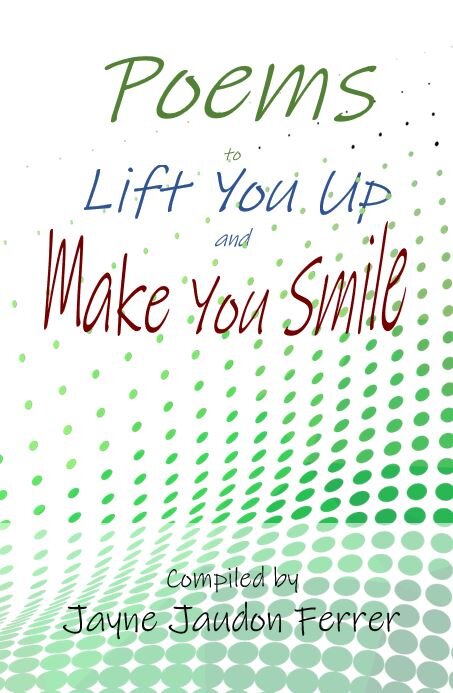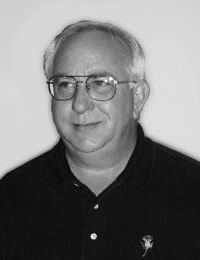 |
Login |
| Poetry Cam |
| Poetry News |
| Poet Profiles |
Company Email:

Ask for this YDP anthology at your favorite bookstore or order it online today!
.
Poet Profile: Richard Allen Taylor
Richard Allen Taylor lives in Charlotte, North Carolina. A poet by desire, rather than profession, his day job is working as a human resources manager for a retail automotive dealership. Richard came (back!) to poetry late in life but is making up for lost time, having served as one of the editors for the Kakalak Anthology of Carolina Poets and establishing an impressive array of published work and loyol following of fans. To me, Richard is a perfect fit for Your Daily Poem; he writes of real world situations--honestly, and usually with a touch of humor. Why poetry?
Poetry seems to be the most durable art, the one that gets passed down from century to century and serves as a monument to the culture and time from which it sprang. Over there, next to the pottery shards.
How did you come to be a poet?
I dabbled in poetry when I was in my 20s, mostly as a way to exorcise my own demons. Most of the stuff I wrote then was terrible, just terrible, and most of it has been lost or thrown away, I hope. I quit poetry in my 30s because I had no talent for it and it didn’t make money. There was a seventeen-year gap, literally, on my poetry bookshelf, to mark where I quit reading and writing poetry and when I picked it up again. Despite the lull, I was occasionally moved to write a poem on the sly now and then. In my 50s, I came under the spell of friends, poets and other disreputable characters who encouraged me to pick up the pen and be a poet again. I took it more seriously the second time around; worked at it, took some classes, started sending to magazines and entering contests.
Do you have favorite poets or poems?
I admire Billy Collins for what he has accomplished both as a poet and as an ambassador for poetry. “Litany” comes to mind as one of Collins’ most memorable. Peter Meinke is another favorite. He wrote a terrific sonnet, “Sonnet on the Death of the Man Who InventedPlastic Roses” that I love for its blend of insight, craftsmanship and humor.
What's the most interesting "poetry pilgrimage" you've ever made?
I wish I could say Paris or Rome but I’ve never been to those places. I attend Maureen Ryan Griffin’s coastal writing retreat to Sunset Beach, NC every November. It’s held at a bed and breakfast with ocean in front, salt marshes and Intracoastal Waterway in back—a beautiful place. Maureen has been my most influential poetry teacher and, though I don’t see her often anymore, it’s great to return to her at least once a year for the inspiration and guidance I always get from her workshops. And the people who attend those events are always interesting. The combination of place, people, and permission to write without the distractions of daily living always seem to help clean the cobwebs out of my brain and get the writing flowing again.
In the great scheme of things, where does poetry fit in?
Someone said we have plenty of poets but not enough readers, or that most people who read poetry are poets. I think that’s true. I think one of the great things about YDP is that it does attract a wider readership than any one poetry book or author could attract. When I travel I often read poetry in the airport or on the plane, and have never—repeat, never—seen anyone else reading poetry before or during a flight. The fact that only a handful of poets actually make a living by writing poetry is another clue that literary poetry is not appreciated by the masses, but neither are some of the other arts: opera and ballet, for example. In some ways, part of the appeal of poetry for us who write or read it is that poetry is something that not everybody can do, and so we can think of ourselves as an elite segment of society. I suspect that people who attend Star Trek conventions or collect ostrich feathers also think of themselves as elite segments of society, but hey, that’s why we have so many TV channels. We are a very fragmented society. So what percent of the U.S. population reads at least one book of poems per year? Or in their entire lives after graduating from high school? It must be miniscule. Yet we seem to have faith that there is a great cycle in motion, that poetry is temporarily out of favor but will rise again.
Describe your writing routine and/or process.
I doubt that I have a routine or process that others would want to emulate. I tend to write in streaks, with times of high productivity and times that I write so badly and infrequently that I fear that I’m tapped out, but then I get on another streak and have fun while it lasts. I admire writers who are so disciplined that they write every day. Actually I do write every day, but much of it is job related—business prose—and not at all “literary.” Most of my poems start as an idea or observation, incubate in my head awhile, and then come out with lots of rough edges that need to be hammered into shape. I have a critique group and a circle of other poets who give me good feedback, and I never consider a poem finished until I have read it at open mikes and revised it several times. Then there are the rare occasions that a poem comes out spontaneously and needs little revision. I call those “lightning strikes” and when they happen, it’s as if the writing is coming from someplace outside myself; I’m just the recording secretary.
What's the most absurd thing you've ever written a poem about?
I’ve written an ode to a can of shaving cream, and one to a stop sign, intended humorously, of course.
When/where are you most inspired?
At times I find being near the ocean inspiring, but I have also sat on the beach with a journal and pen and been completely stuck, wondering what the heck I can say about the ocean that hasn’t already been said. What does seem to work well for me, though, is just about anything that gets me out of my normal routine. I don’t consider myself a “nature poet” by any stretch of the imagination, but getting out into the natural world does seem to help. Even then, the poetry that comes out is seldom about “nature” so much as it is the interaction of my inner world of thoughts and imagination and the outer world of ocean, mountains and sky, or whatever happens to be surrounding me at the moment. Just sitting at my desk trying to create something brilliant doesn’t work very well for me. The desk is a place for editing and revising.
Which classic poet would you most like to meet, and why?
Shakespeare, of course. He wrote in the language of his day. He was easily understood and his work was appreciated by a wide spectrum of people and his work has endured for hundreds of years. I think he would have been an interesting fellow to know. But, if by classic you mean much earlier, I’d love to interview Homer, provided we could find a competent interpreter.
Is there some consistent trademark or characteristic that you've discovered in your poetry?
|
|
| Home | About Us | Contact Us | Sitemap | Bookmark Us | Website Development by Practical Business Systems |
As an Amazon Associate I earn from qualifying purchases. Purchasing books through any poet's Amazon links helps to support Your Daily Poem. The material on this site may not be copied, reproduced, downloaded, distributed, transmitted, stored, altered, adapted, or otherwise used in any way without the express written permission of the owner. |
